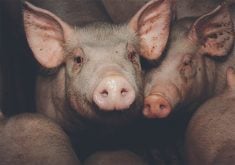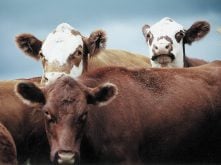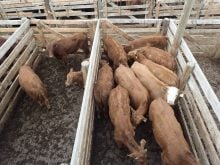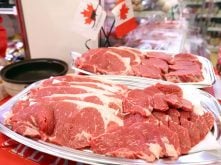ENCHANT, Alta. – In 1998, Rick and Marian Stamp were named one of Canada’s outstanding young farmers.
They were on top of the world with four healthy children living on a prosperous, diverse certified seed farm in southern Alberta’s irrigation country.
But two years later they feared they might lose their 1,000 acre farm located on the edge of the village of Enchant.
As part of their interest in trying new things, they had been growing seed potatoes from tissue culture since 1990. They built a greenhouse and an atmosphere controlled warehouse and bought specialized implements.
Read Also
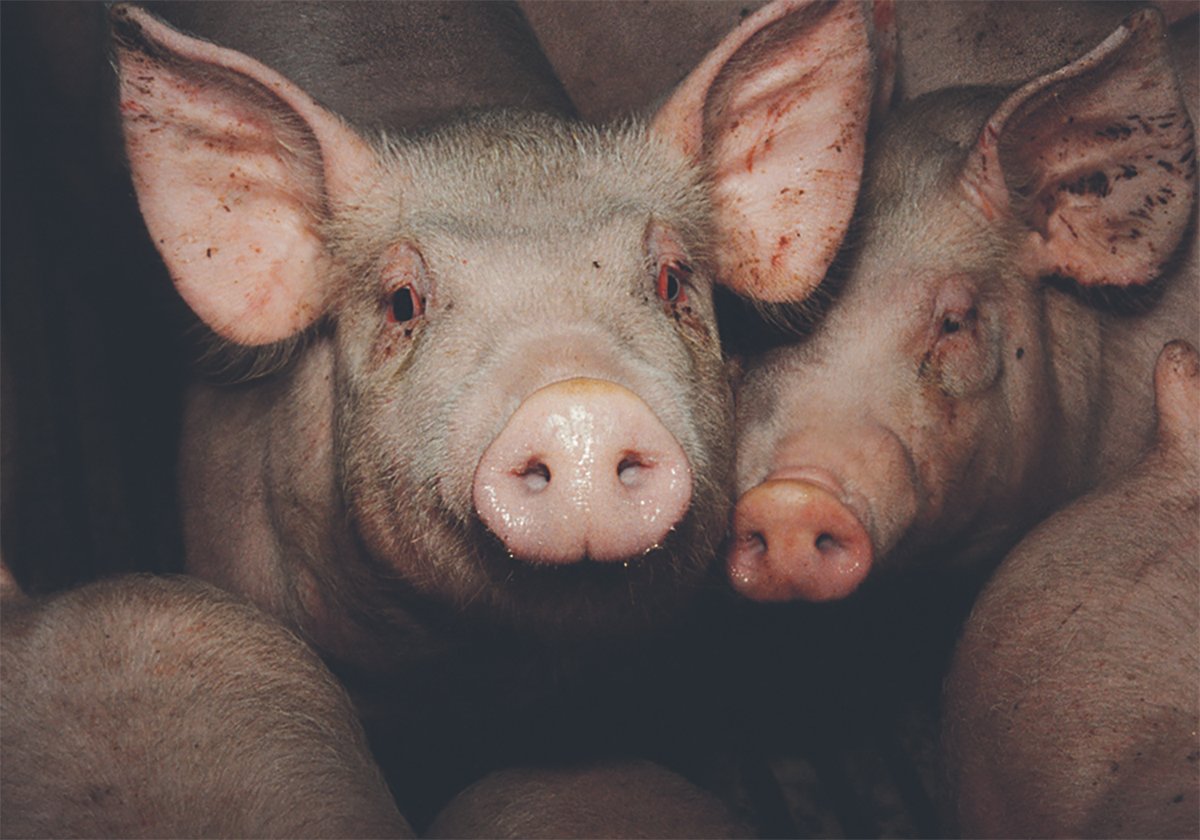
The Western Producer Livestock Report – October 30, 2025
Western Producer Livestock Report for October 30, 2025. See U.S. & Canadian hog prices, Canadian bison & lamb market data and sales insights.
In 1995, they started growing seed potato lines for Monsanto in their greenhouse and in the field. These potatoes were genetically altered for resistance against Colorado potato beetle, and tolerance to herbicides and some viruses.
“Some were just a numbered variety and we didn’t know for sure what it was. We weren’t privy to all that,” Rick said.
Potato growers across Canada were stunned when major processors and fast food chains announced they would not accept GM potatoes in 2000. Up to that point there was no specific protocol established by the Canadian Food Inspection Agency or Monsanto regarding GM potatoes.
“In hindsight, they probably should have,” said Rick. “The technology was there. They had it, but no testing for GMO was being done initially.”
The potatoes all looked the same in field crop inspections. The built-in resistance had to be tested at the cellular level but varietal testing for genetic modification was not part of the seed potato guidelines. Apparently, neither Monsanto nor the inspection agency had anticipated the consumer backlash.
The Stamps were forced to throw out a large portion of their crop, about $500,000 worth of potatoes.
“Had it been advertised properly to the consumer, and gained public acceptance beforehand, GMO might have gone differently,” Marian said.
They had borrowed heavily for the necessary equipment and storage, expecting a good return. They had devoted less time to the rest of their certified seed business because of the heavy investment of time and money into potatoes.
“You have all this additional debt and nothing to sell,” said Rick.
Decisions had to be made as they embarked on damage control. They sold their potato implements, rented their farm to others for two years, and watched every penny. They started a landscaping business, rented out the warehouse to other farmers and started to plan a different future.
“We have always diversified into other types of farming, but now we are diversifying into some non-agricultural ventures,” said Marian.
With their farm rented, they found new work when they won a tender to landscape the local school grounds. They installed underground sprinklers, lawns and bushes. That business expanded into commercial and acreage projects.
“All of a sudden it’s become close to 20 percent of our total farm income. We now have projects booked into next year,” said Marian, who is also a substitute teacher.
They are not out of the woods yet but they are not bitter about their experience. With careful planning and considerable thought, they continued with their philosophy that a diversified farm can survive.
Their children may be interested in farming in the future so it was important to have something to build on.
Being burned once, the Stamps question the wisdom of releasing GM wheat. They believe in the benefits of biotechnology but know what happens when trading partners reject a product.
“Roundup Ready wheat is going to be the BSE of wheat. If it comes into the Canadian grain system, there is no way it can be kept segregated,” Rick said.
“Just like the cattle, we know there isn’t a problem, but our trading partners say ‘we might have a problem’ and won’t buy from us, using it as a trade barrier.
“It is again the perception that there could be a problem. Who will share in the risk of producing GMO products, when the technology has not been widely accepted?” he asked.
The Stamps have decided the farm and their work do not have to define them. That belief may have been what clinched the outstanding young farmer award. The program has turned out to be one of their best experiences as a farming couple. They made friends across the country and as members of the award alumni, help co-ordinate the regional program to attract more young people into the fold.
The program has several components. The provincial level requires a letter of support from the family’s bank and interviews. The national competition is more intense.
Marian compared it to a job interview where they talk about their farming experiences and philosophy, farm improvements, financial management and community involvement.
They especially liked the program’s emphasis on family values and quality of life. The Stamps believe in living with as little stress as possible, with plenty of time for family and other interests.
“You have to know why you are doing what you are doing and you have to keep your vision of your family life,” said Rick.



